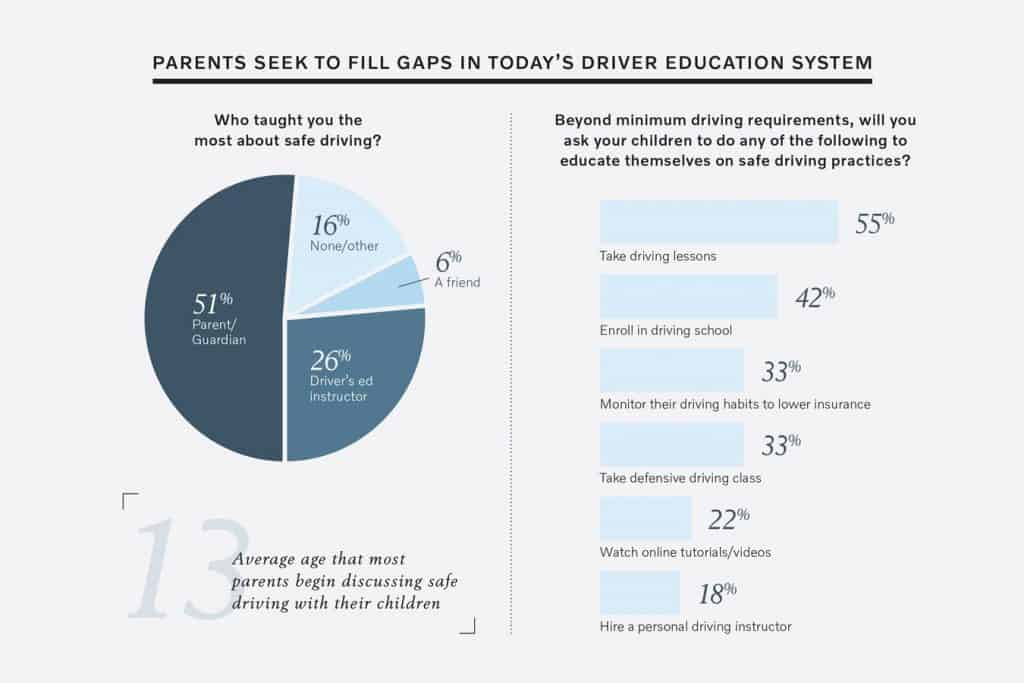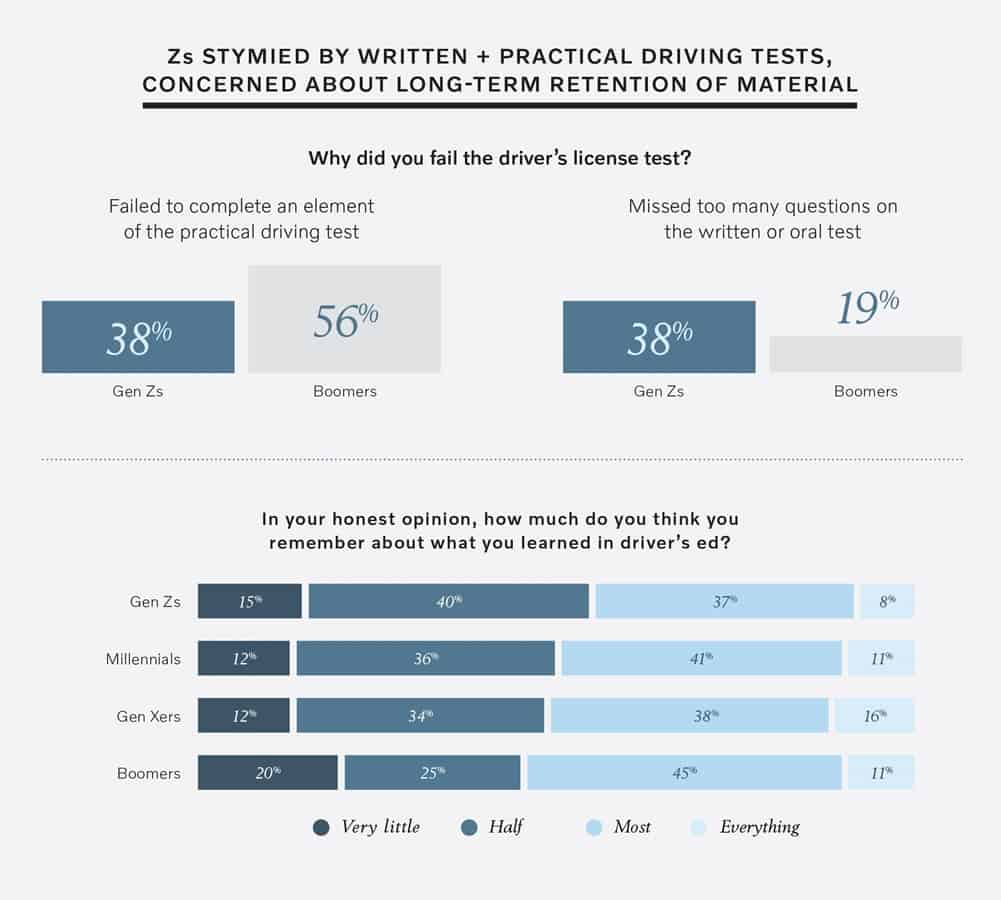 Before you go on the roads this 4th of July be very careful—-it’s dangerous out there. The Fourth of July holiday can be very dangerous for auto thefts and drivers. Some cities are worse than other Lytx, named the riskiest cities to travel during the Fourth of July holiday.
Before you go on the roads this 4th of July be very careful—-it’s dangerous out there. The Fourth of July holiday can be very dangerous for auto thefts and drivers. Some cities are worse than other Lytx, named the riskiest cities to travel during the Fourth of July holiday.
Problems could be that drivers don’t get enough training and they hate the other generation according to two new surveys from Volvo.
Volvo has been surveying drivers and found that driver education is lacking and generations fear the other generations driving.
Driver’s Ed Sucks
To better understand the effectiveness of today’s driver’s ed programs, Volvo set out to explore how Americans of all ages learned to drive, what information was available and retained, and what they think needs to be changed or updated in the process. The full results are published in Volvo Reports: The State of Driver Education, the latest in a series of Volvo Reports from Volvo Car USA and The Harris Poll, that explores the ever-changing relationship between Americans and their car.
While 95% of students had access to public driver’s ed in the 1970s, only 10 states in the US have dedicated public education programs today, despite an overwhelming number of Americans (9 in 10) supporting its inclusion.
Americans Believe the Driver’s Test is Antiquated
- More than half (52%) of Americans feel that driver’s education is outdated.
- Three in five drivers agree that today’s driver’s test is designed to be passed, as opposed to truly testing one’s driving skills (60%).
- 1 in 3 licensed drivers spent less than 20 hours behind the wheel prior to taking their driving test (28%).
- 41% of licensed drivers urge states to mandate a minimum of 50+ hours behind the wheel.
- While requirements vary at the state level, they mandate an average of 46 hours behind the wheel, but 16 states require 40 hours or less.
- With a reduction in public driver’s education programs, parents are taking on a bigger role in the process, as most drivers cite their parents as their most influential driving teacher – twice as many as those who named an instructor.
This survey was conducted online within the United States by The Harris Poll on behalf of Volvo from May 21-29, 2019, among 2,000 licensed adults ages 18 and older. This online survey is not based on a probability sample and therefore no estimate of theoretical sampling error can be calculated.
 Gen Z vs Baby Boomers and Vice a Versa
Gen Z vs Baby Boomers and Vice a Versa
According to a new survey by The Harris Poll on behalf of Volvo Cars, Gen Zs and Baby Boomers point the finger at each other when naming the most significant safety threats on the road today.
In a wide-ranging survey of Americans across a broad range of generations, Volvo set out to explore the effectiveness of driver’s ed programs in developing safer and more confident drivers. The full results are published in Volvo Reports: The State of Driver Education, the latest in a series of Volvo Reports from Volvo Car USA and The Harris Poll, that explores the ever-changing relationship between Americans and their car.
Generational Divide Extends to Safety Threats and Driver’s Ed
- Two-thirds (66%) of Americans of all ages believe teens are the most dangerous drivers on the road today, but younger, newer drivers disagree.
- Gen Zs claim senior citizens are the biggest safety threats (58%).
- While 85% of older drivers stand by driver’s ed as a reason for being a confident driver, Gen Zs are less likely to do so (74%).
- Even as the most recent generation to take driver’s ed, 1 in 4 Gen Zs (24%) are not confident they would pass the driver’s test if they had to retake it today.
- Long-term retention is also an issue, as more than half (55%) of Gen Zs say they remember half or less of what they learned in driver’s ed.
- The oldest drivers surveyed, Boomers, say they remember most or everything they learned (56%).